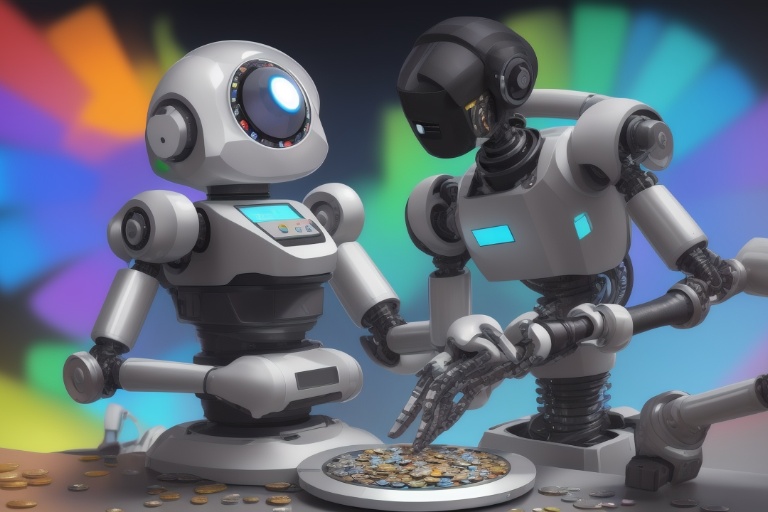Artificial intelligence (AI) occupies a central place in our technological and scientific narratives these days. Conjuring images of futuristic robotics and transformative discoveries, AI has undoubtedly shifted the paradigm across countless industries. At its core, AI, or machine intelligence, simulates cognitive processes typically associated with human intellect, such as learning and problem-solving. This sophisticated replication of human reasoning powers everything from our smartphones to comprehensive medical diagnoses, disrupting the status quo with each breakthrough.
Artificial intelligence (AI) occupies a central place in our technological and scientific narratives these days. Conjuring images of futuristic robotics and transformative discoveries, AI has undoubtedly shifted the paradigm across countless industries. At its core, AI, or machine intelligence, simulates cognitive processes typically associated with human intellect, such as learning and problem-solving. This sophisticated replication of human reasoning powers everything from our smartphones to comprehensive medical diagnoses, disrupting the status quo with each breakthrough.
The Integration of AI in Various Industries
AI's omnipresence across multiple sectors highlights its versatility and capacity to redefine business models and consumer experiences. Tools like Siri and Google Assistant have made AI our constant companion, attending to queries with a sophistication that blurs the line between machine and human interaction. Meanwhile, drones and intelligent ad placements reflect AI's breadth, impacting everything from aerial video content to pinpoint marketing strategies.
The Employment Landscape and AI
The economy braces itself as AI advances signal a portal to an unknown future of work. A Forrester report pulls back the curtain on a staggering statistic: an estimated 29% of jobs could be at risk by 2030, translating to around 20 million positions potentially rendered obsolete. Repetitive roles such as data entry clerks, inventory managers, and receptionists are particularly susceptible to automation. Real-world examples of AI's influence are evident in self-driving cars, automated drones, and advanced manufacturing robots. Competitive enterprises are thus urged to adapt to AI, hybridizing human workforce with smart technologies to remain relevant.
Unprecedented Discoveries through AI
Beyond the specter of job displacement lies the tantalizing possibility of AI-driven discoveries. Predictive modeling, a forte of AI, has facilitated scientific quests with impressive accomplishments. For instance, AI's analytical insights unearthed novel thermoelectric materials at Lawrence Berkeley National Laboratory, and even assisted NASA in identifying an eight-planet solar system. Similarly, AI's pattern recognition capabilities empowered astronomers at the University of Texas to pinpoint two new planets. This trail paved by AI not only accelerates the journey of discovery but also empowers scientific endeavors to expand the realms of known knowledge.
AI in Healthcare – A Vision of Progress
The medical field stands out as a primary beneficiary of AI innovation. AI's proficiency in dissecting extensive data sets illuminates previously obscured health trends and response patterns. Consequently, this empowers researchers to construct algorithms aimed at prolonging human life, fine-tuning diagnostics, and hastening the journey from the research lab to the patient. Drones already serve as pivotal tools in providing emergency medical supplies and services. The intersection of AI with nanotechnology further signals a transformative approach in treating complex diseases, notably cancer, by enhancing targeted drug delivery systems.
The Dawn of Robot Companionship
Conversations on robotics are no longer merely the stuff of sci-fi fantasies, as evidenced by ongoing research dedicated to replicating the intricacies of human interaction. Advanced prototypes of companion robots, such as Sanbot, Buddy, and ASIMO, reveal a future wherein robots transcend industrial settings. These mechanized beings promise to offer companionship, assistance with daily chores, and personalized services in households, potentially revolutionizing our domestic routines.
Navigating Ethical and Safety Concerns in AI
However, the burgeoning capabilities of AI simultaneously trigger significant safety concerns. The Turing test, a benchmark founded by Alan Turing, challenges AI to convince us of its indistinguishable human-esque thinking. Notably, a chatbot named Eugene Goostman passed this test in 2014, reigniting debates around AI's integration. From warnings by world leaders to the ethical quandaries over AI's roles in global defense and individual rights, the implications are as far-reaching as they are complex. We must consider the potential of AI's misuse, addressing the risks of weaponized AI and abuse of power, all the while safeguarding against turning life-saving innovations into strategic weapons.
Conclusion
As AI's narrative unfolds, embracing its progress requires us to weigh its profound impact thoughtfully. The integration of AI is not without its caveats; the shadow of job displacement contrasts sharply with the light of scientific discovery. Robot companions could become fixtures in future homes; nevertheless, responsibilities around safety and ethics cannot be ignored. AI holds a tremendous potential to shape the trajectory of human progress, and the responsibility lies in our hands. It is incumbent upon us to promote AI's growth while balancing the scales with stringent safeguards and conscientious policymaking.
The discourse on AI will persist, as the blend of human intelligence with machine efficiency continues to evolve and challenge our conceptions. Anticipation is high for subsequent installments in our series where we'll delve into programming depths, AI intricacies, and ML marvels that are setting the new standards in innovation.
Information for this article was gathered from the following source.




